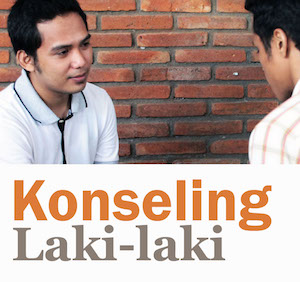
Summary
The book "Being a Man – Javanese Perspectives about Masculinity and Domestic Violence“ represents a study concerning the different perspective of issues of violence which is not the women as victims but the men as perpetrators. It is a preliminary explorative study as an effort to understand dynamics of thoughts and feelings of men that are related with issues of masculinity and domestic violence.
There is a certain self perception of men concerning values of male patriarchy which includes the susceptibility to conduct violence against women as a large problem of male hegemonic awareness. Men seem to be tied up in patriarchal values what is expressed in the feeling of debacle as soon as women demonstrate to become more advanced. In a patriarchal culture the ideal of a man is to be strong, determined and responsible for his family. The woman stays at home as a housewife with loyalty towards her husband while taking care of the children. As physical power is the symbol of masculinity, violence against the wife is the most convenient way to resolve a husband‘s mental stress. Masculinity is not a single entitiy but diverse and deeply related with socio-economic status.
In Yogyakarta domestic violence including dating violence, rape and sexual harrasment is the kind of violence most frequently experienced by women. Domestic violence is a serious issue concerning community health, especially for women it is a risk factor to physical, mental and reproductive health. There is a diversity of risk factors contributing to violence including poverty, socio-cultural norms, masculinity and self-identity.
As there is insufficient information concerning men’s perspective the study aims to answer why men conduct violence against women and how men view themselves as well as how they view domestic violence.
Factors like the perception of manhood, perceptions about the status of men in the society including his social roles and responsibilities and perceptions concerning the roles and responsibilities in the family including child nurturing and the husband-wife relation all play a significant role in understanding men’s perspective within a patriarchal culture. A man has to be physically healthy and strong, own strong mental and spiritual abilities, broad knowledge, faith and a firm stance. These characteristics are significant in supporting social functions. Men own a privileged status in society, they function as a bridge between the family and the society and are generally in a superior position. A man is always responsible for success or failure of the family and gets the largest attention from society.
Diverse factors influence this concept of manhood, namely environmental influences and the understanding towards religious texts and cultural idioms which clearly demonstrate how a man has to act in society. A man has to be strong, he has to prove his manhood, he always has to win and he must protect his family. These obligations often lead to internal conflicts because of the discrepancy between the ideal and the actual self which can cause domestic violence against his wife and children.
The key to the problem of domestic violence is located in the patriarchic culture in which concepts of traditional masculinity and superiority are strongly embedded. Violence against women is a complex phenomenon that has deep roots in unequal gender relations. Initiatives to eradicate have to be related with the background of trust and cultural traditions as well as social structures. When standards of manhood fail to be achieved men feel their self esteem is threatened which causes distress and leads to losing control and acting violently to restore their self esteem.
As the society mostly reacts passively because of cultural traditions, cases have been ignored while values in society claim these problems are taboo and do not require any intervention.
To overcome problems of domestic violence as efforts of prevention and recovery men have to be involved. The male involvement becomes an obligation to global social change for the improvement of women’s status. A perpetrator’s approach must be conducted and a strategy considering cultural aspects has to be taken to socialize that domestic violence is a problem not only for women, but also for men. These efforts must be implemented in government units and have to take into account social and religious figures.[]
Writer: Lisa Hallmann, student of Ethnology, Faculty of Behavioral and Cultural Studies, University of Heidelberg, Germany.







